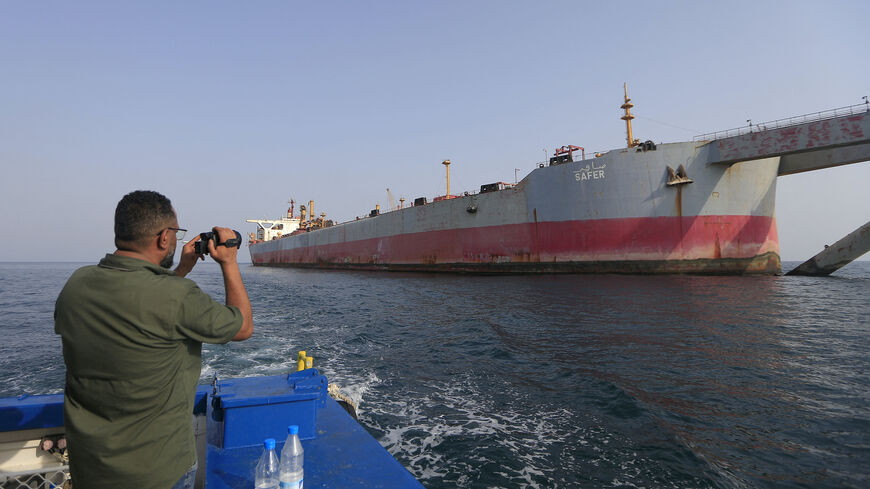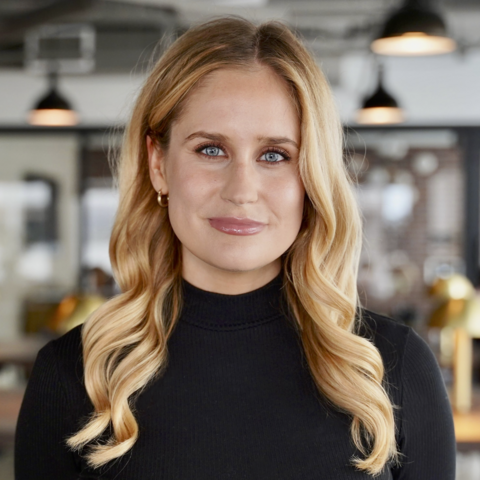WASHINGTON — A years-in-the-making operation to drain oil from an aging supertanker moored off Yemen’s western coast shows what can be achieved through de-escalation among the country's warring parties, the US special envoy for Yemen told Al-Monitor in an interview.
The FSO Safer, a 47-year-old vessel stranded near the Yemeni port of Hodeidah, has long been considered an environmental time bomb that could unleash havoc on a country already considered the poorest in the Arab world.
The Safer is under the control of the Houthis, an Iran-aligned rebel group that relied on the vessel as a military deterrent in its conflict with the Saudi-backed internationally recognized government in Yemen. The Houthis haven’t performed maintenance on the rusting Safer since seizing it from the state-run oil company in 2015, and for years they stonewalled UN efforts to send inspectors onboard. The fast-decaying ship is now considered beyond repair.
With seawater leaking into the vessel’s engine room and damaging its pipes, experts said it was no longer a matter of if, but when, the Safer leaked more than 1 million barrels of light crude oil into the sea — four times the amount spilled in the Exxon Valdez disaster of 1989. Experts warned the slick could reach the coastlines of Djibouti, Eritrea and Saudi Arabia, contaminate drinking water supplies for the entire region, wipe out its fisheries and disrupt one of the world’s busiest commercial shipping routes.
“The wreckage of the toll on human and sea life would have been extraordinary,” said US Special Envoy for Yemen Tim Lenderking.
An oil spill of that scale would have “obliterated the positive story in Yemen,” Lenderking said. “It’s still hard for people to grasp that Yemen is not at war anymore.”
Yemen is currently experiencing its longest period of relative calm since the war erupted nearly a decade ago, killing hundreds of thousands of Yemenis and repeatedly pushing the impoverished country to the brink of famine.
The bloody conflict between the Saudi-led military coalition and the Houthis had slowed to a stalemate by the time a UN-mediated truce was reached in April 2022. The truce collapsed six months later, but the warring parties have largely stuck to the terms.
It’s within this context that the Houthis agreed last year to cooperate with the United Nations on removing the oil from the neglected ship. The Safer wasn’t included in the truce agreement, but Lenderking sees some linkage.
“That there had been cooperation on something as important as de-escalation, I think created an atmosphere for the region to say, ‘hey, maybe Yemen's turning a corner. What about that Safer?’” Lenderking said.
Once the UN secured Houthi cooperation last year, Lenderking and David Gressly, the UN resident and humanitarian coordinator in Yemen, joined forces to raise the funds needed to siphon the oil off the Safer and transfer it to a seaworthy vessel. The entire operation would cost $143 million, a drop in the bucket compared to a potential oil cleanup, estimated in the tens of billions.
A fundraising drive secured $121 million from more than 20 countries, the private sector and crowdfunding. The United States contributed $10 million. Another $22 million is still needed to fully carry out the complex operation, including cleaning the Safer and towing it away for recycling.
After months of preparation, a team of international experts on Tuesday began the first phase: offloading the Safer’s oil to another vessel purchased by the UN.
Veena Ali-Khan, a Yemen researcher for the International Crisis Group, described the diplomatic push leading to the Safer’s oil transfer as a lesson for the other negotiating tracks aimed at resolving the nine-year war in Yemen.
“The Safer example demonstrates the importance of dialogue and constantly traveling into Sanaa to see results,” Ali-Khan said.
The operation comes three months after a Saudi delegation visited the Houthi-held capital of Sanaa for rare negotiations with the rebels aimed at ending the war. At the time, Hans Grundberg, the UN special envoy for Yemen, called the talks “the closest Yemen has been to real progress toward lasting peace” since the war began.
The negotiations followed a Beijing-brokered agreement in March that restored diplomatic relations between Saudi Arabia and the Houthis’ main patron, Iran. There was hope that Yemen, long a venue for proxy warfare between the two countries, would benefit.
But despite the Saudi-Iranian rapprochement and other signs of progress, including an April prisoner swap between the Houthis and Yemeni government, there’s been no breakthrough in the Saudi-Houthi negotiations, which are bogged down over the payment of public sector salaries and other issues.
Further dimming optimism for a durable peace in Yemen is the exclusion of other factions, including the Yemeni government and the Emirati-supported Southern Transitional Council, from the Houthi-Saudi negotiations. Lenderking says an inclusive dialogue is needed, and hopes the talks between Riyadh and the rebels can pave the way.
“At the end of the day, we believe that the Saudis and the Houthis coming to agreement on key issues doesn't equate to peace in Yemen,” Lenderking said. “You've got to get a Yemeni-Yemeni conversation going.”








